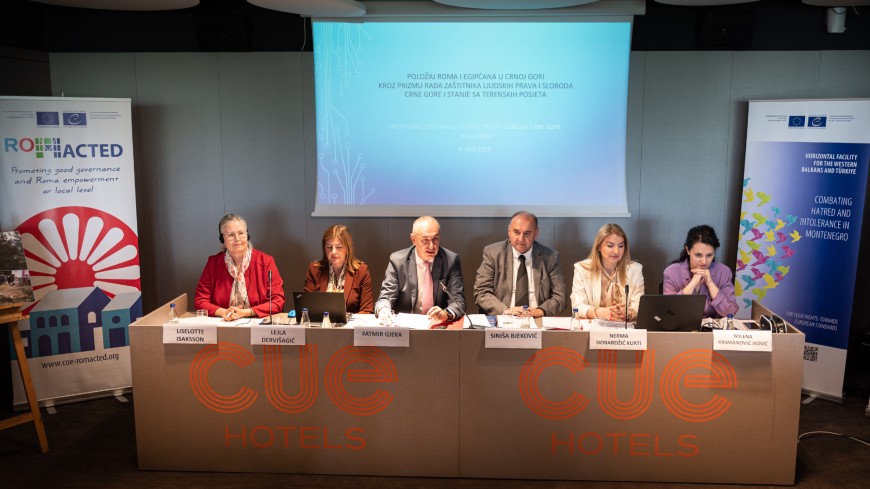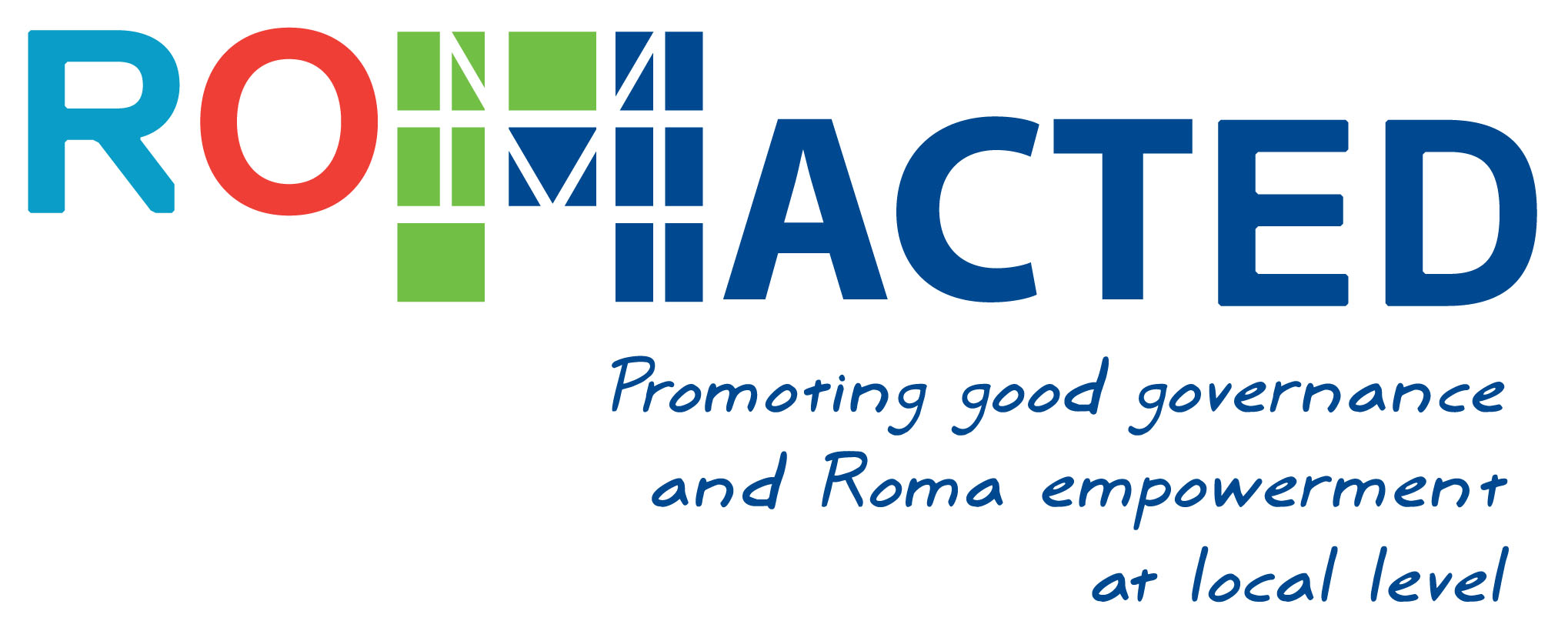The Protector of Human Rights and Freedoms of Montenegro (Ombudsperson) presented its 2022 Report on Roma and Egyptians in Montenegro at a conference supported by the European Union and the Council of Europe, held in Podgorica today.
In his introductory speech, the Ombudsman Siniša Bjeković, announced that this was the first thematic report by the Ombudsperson regarding the situation of Roma and Egyptians, which was compiled based on field visits and conversations with members of the Roma and Egyptian communities, as well as individual representatives of local authorities. "The report presents certain areas that have been identified as priorities. The report aims to raise awareness among the general and professional public about the state of the rights and freedoms of Roma and Egyptians, as well as taking measures and activities to improve their position and create conditions for equal status in society," emphasised Bjeković.
“The position of Roma and Egyptians is still unfavourable in all key aspects of life, from social and economic status to education and political participation. Members of the Roma and Egyptian populations are still isolated from the rest of the population and mainly live in segregated settlements, which leads to an increase in social distance and exclusion due to such physical separation”. To conclude that “the situation observed during field visits to settlements where Roma and Egyptian people live has prompted the Ombudsman to initiate cases concerning a wide range of violations of rights and freedoms”.
Besides the findings, the Ombudsperson presented the recommendations and the discussion focused on the ways to address discrimination and hatred against the Roma and Egyptian community in Montenegro, but also on what can be done jointly with European partners.
Fatmir Gjeka, Minister of Human and Minority Rights recalled that “Roma people are among those who have been neglected in many countries and whose integration process has been going on for long time. Their communities remain among the most vulnerable social groups and in our country, according to the latest research, are on the margins – socially excluded”. He concluded that “One of the basic goals of the Government of Montenegro and the relevant Ministry is the full integration of all minority people and minority communities in the social life.”
“Anti-Roma sentiment and multiple discrimination are the main reasons for social exclusion, while the consequences of their unfavourable position include a high rate of unemployment, low enrolment and completion rates in schools, as well as poor living conditions for the vast majority of Roma and Egyptians," emphasised Liselotte Isaksson, Deputy Head of the Co-operation Sector at the Delegation of the European Union to Montenegro.
Lejla Dervišagić, Head of the Council of Europe's Programme Office in Podgorica, addressed in her speech the role of the Council of Europe and joint European Union and the Council of Europe action "Combating hatred and intolerance in Montenegro", that includes support for the Office of the Ombudsman as the national equality body in raising awareness of discrimination and anti-Roma sentiment at all social levels.
"This initiative, together with the joint European Union and Council of Europe ROMACTED (Promoting Good Governance and Empowerment of Roma at the Local Level) programme, is being implemented in close partnership with local, central, and EU partners and aims to reach local communities and ensure that citizens feel their voice is heard and their rights are better protected," said Dervišagić.
The event and publication of the report were supported within the framework of the action on Combating hatred and intolerance in Montenegro, part of the joint European Union and Council of Europe programme “Horizontal Facility for the Western Balkans and Türkiye”, implemented by the Anti-discrimination Department of the Council of Europe in partnership with the Ombudsperson Office and the Ministry of Human and Minority Rights of Montenegro. As part of this action, work is carried out with partners in Montenegro in line with the 2017 recommendations of the Council of Europe’s Commission against Racism and Intolerance.


